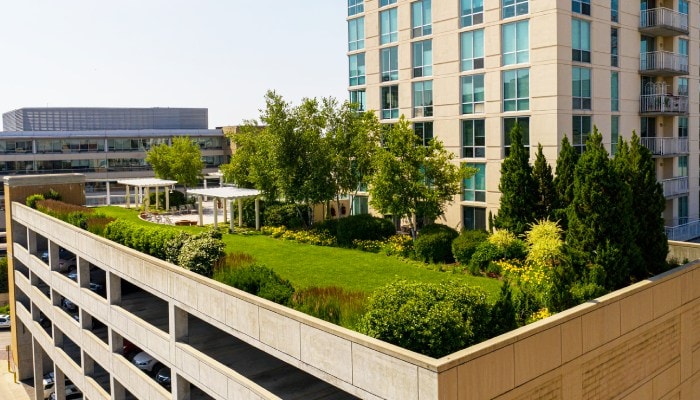In today’s rapidly urbanizing world, the topic of sustainable wastewater management is gaining unprecedented importance. Cities across the globe are facing a critical challenge: how to accommodate their growing populations and expanding infrastructures while safeguarding the environment. This complex issue has pushed wastewater management to the forefront, not merely as a utility concern but as a vital component of sustainable urban development and the broader agenda of sustainable cities.
Historically, wastewater was viewed largely as a waste product, something to be treated in sewage treatment plants and disposed of with minimal thought to its potential value. However, as we move into a more environmentally aware era, this perspective is undergoing a significant shift. Wastewater is increasingly seen not just as a byproduct to be discarded, but as a valuable resource offering numerous possibilities for recovery and reuse. This represents a fundamental shift in our approach to urban environmental management, turning a challenge into an opportunity to conserve water, reduce pollution, and move closer to the sustainable, circular economy models that are gaining traction globally. This evolution is pivotal in the realm of sustainable water management.
The evolution in wastewater management is not solely about technological advancements. It encompasses a broader shift in mindset, encompassing the adoption of new practices and the reimagining of our urban centers. In this context, cities are viewed as dynamic ecosystems, where every process is integrated and functions efficiently. In this journey towards sustainable urban living and sustainable development, the innovation in wastewater management systems is not just a technical requirement but a driving force for wider ecological and societal change.
As we delve deeper into this topic, we will explore the nature of wastewater and the transformative impact that rethinking its management can have on the pursuit of sustainable city growth. Join us in exploring how these advancements are shaping the cities of the future, contributing to the vision of sustainable cities that balance growth with environmental stewardship.

Understanding Wastewater: From Problem to Resource
So, what exactly is wastewater? At its most basic, it’s the water that has been used by households, industries, and businesses, and can no longer be used for its original purpose without treatment. It’s a cocktail of water and waste, containing everything from domestic effluents like soap and food particles to industrial chemicals and by-products. Traditionally, this mix has been viewed as a problem – a hazardous substance that needs to be treated and disposed of efficiently to keep our environment clean and our populations healthy.
But here’s where the modern twist comes in: what if we start looking at wastewater not as waste but as a resource? This paradigm shift is at the heart of advanced wastewater management. When treated properly, wastewater can be a source of valuable resources. It can provide reclaimed water for irrigation, landscaping, or industrial processes, contributing significantly to sustainable water resources management. It can be a source of nutrients like phosphorus and nitrogen, which are crucial for agriculture. And excitingly, it can even be a source of energy through the capture and use of biogas produced during the treatment process, thereby reducing energy consumption and lowering greenhouse gas emissions.
This transformed perspective is not just about being eco-friendly. It’s about being smart and sustainable in an era of growing populations and limited resources. By reusing and recycling what we once considered waste, we’re taking significant steps towards more resilient and self-sustaining urban ecosystems. Integrating systems like rainwater harvesting further enhances this approach, where every drop of water is valued and nothing goes to waste.
In this context, wastewater management becomes not just a necessity but an opportunity – an opportunity to innovate, to conserve, and to lead the way in building cities that are not only habitable but harmonious with the environment. As we turn to the technological and natural solutions making this shift possible, it’s clear that the future of our cities could very well hinge on how we handle something as seemingly mundane as wastewater.
Technological Innovations in Wastewater Treatment
As we delve into the world of wastewater management, it’s clear that technology is a game-changer. Gone are the days of simplistic treatment methods. Today, the field is abuzz with innovations that are not only more efficient but also kinder to our planet. These advancements are crucial in our efforts to lower greenhouse gas emissions and implement sustainable practices like rainwater harvesting systems. Let’s explore some of these cutting-edge technologies revolutionizing wastewater treatment.
First up are Membrane Bioreactors (MBRs). These systems combine conventional biological treatment methods with membrane filtration, providing a one-two punch in treating wastewater. The result? Exceptionally high-quality effluent that’s safe enough for reuse in a variety of applications, including supplementing rainwater harvesting systems. MBRs are compact, energy-efficient, and represent a giant leap forward in our ability to reclaim wastewater, all while contributing to lower greenhouse gas emissions through reduced energy consumption.
Next, let’s talk about Advanced Oxidation Processes (AOPs). These processes use combinations of UV light, ozone, hydrogen peroxide, or other oxidants to break down pollutants at the molecular level. AOPs are particularly effective against contaminants that are otherwise hard to treat, including pharmaceuticals and personal care products. It’s like having a molecular-scale cleanup crew ensuring our water is not just clear but truly clean, further contributing to the sustainability of urban water systems.
And then there’s the rise of Smart Wastewater Technologies. Imagine a wastewater treatment plant that’s as smart as your phone. Leveraging the power of AI and the Internet of Things (IoT), these smart systems monitor and adjust the treatment process in real time. They predict maintenance needs, optimize energy use, and ensure the most efficient treatment process at all times, significantly reducing the carbon footprint of wastewater management.
These technological advancements are more than just fancy gadgets; they are reshaping the way we approach wastewater. By embracing these innovations, cities are not only improving their wastewater management but also paving the way for a future where water scarcity and pollution are problems of the past, and sustainable practices like rainwater harvesting become integral to urban living.

Green Infrastructure and Natural Wastewater Solutions
While high-tech solutions are transforming wastewater treatment, there’s also a growing appreciation for greener, more natural approaches. Green infrastructure and nature-based solutions offer a harmonious way of treating wastewater while enhancing urban environments.
One shining example is Constructed Wetlands. These are artificially engineered systems that replicate the functions of natural wetlands. As wastewater flows through, a combination of plants, microorganisms, and natural processes work together to remove pollutants. The beauty of constructed wetlands lies not just in their effectiveness, but also in their ability to provide habitats for wildlife and green spaces for communities.
Green Roofs represent another fascinating development. These are rooftops covered with vegetation, which can absorb and treat rainwater, a form of indirect wastewater management. By capturing and utilizing stormwater, green roofs reduce the load on sewage systems and prevent the runoff of pollutants into natural water bodies.
Then there are Bio Swales, which are shallow drainage channels filled with vegetation. They are designed to capture and naturally treat stormwater runoff, removing pollutants as water percolates through the soil and plants. Besides their utility in water management, bio swales add aesthetic value and biodiversity to urban landscapes.
These green solutions are a testament to our evolving understanding of wastewater management. They blend technology with nature, providing sustainable, cost-effective, and visually appealing alternatives to traditional wastewater treatment methods. As cities strive for sustainability, integrating these green solutions becomes not just an option but a necessity for a healthier, more resilient urban future.
The Role of Policy and Governance in Shaping Wastewater Strategies
While technology and nature offer tangible solutions for wastewater management, the role of policy and governance is pivotal in bringing these solutions to life. Effective policies and strong governance structures are the backbone of successful wastewater management systems. This section delves into how policy and governance shape the strategies that cities use to manage their wastewater in an eco-friendly manner.
Consider, for instance, the power of regulatory frameworks. Regulations that set high standards for wastewater treatment and effluent quality compel utilities and industries to adopt advanced treatment technologies. These standards, while challenging, drive innovation and ensure environmental protection. Examples from countries like Sweden and Japan show us how stringent regulations have led to the adoption of some of the most advanced wastewater treatment technologies in the world.
Then there’s the role of incentives and subsidies. By offering financial incentives for adopting green wastewater solutions, governments can encourage industries and communities to invest in sustainable technologies. Whether it’s tax breaks for companies that treat and reuse wastewater or subsidies for homeowners to install green roofs, these incentives can significantly lower the barriers to adopting green practices.
Public-private partnerships (PPPs) also play a crucial role. Wastewater management is a resource-intensive sector, and PPPs can bring in the necessary investment and expertise to implement large-scale projects. These partnerships can be particularly effective in deploying new technologies and in managing complex systems like citywide wastewater treatment plants.
Effective wastewater policy and governance are about creating an environment where sustainable practices are not just encouraged but become the norm. It’s about building a framework where innovation thrives, and eco-friendly solutions are supported and implemented for the greater good of the community and the environment.

Community Engagement and Public Awareness
The success of wastewater management strategies is not just in the hands of policymakers and industry experts; it also hinges on community engagement and public awareness. An informed and involved community is a powerful force in driving eco-friendly practices. This section looks at the crucial role public participation and awareness play in advancing wastewater management.
Educational campaigns and community outreach programs are vital. When people understand the importance of sustainable wastewater management – how it affects their water supply, the environment, and even their health – they are more likely to support and participate in such initiatives. Cities that have successfully implemented water conservation and recycling programs often have robust public education campaigns at their core.
Community engagement goes beyond education. It includes involving local residents in decision-making processes, especially when new wastewater projects are planned. This not only builds trust but also ensures that the solutions are tailored to the unique needs and concerns of the community.
Citizen science initiatives, where community members actively participate in monitoring water quality, can also be a powerful tool. Such participation not only helps gather important data but also fosters a deeper connection between individuals and their local water bodies.
An engaged community is a crucial ally in the journey towards eco-friendly city growth. When people understand, care, and participate, they become active partners in managing the urban water cycle, ensuring that the strides we make in wastewater management are not just technically sound but also socially supported and sustained.
Economic and Environmental Impact of Advanced Wastewater Management
The journey towards implementing advanced wastewater management is not just an environmental pursuit; it also makes economic sense. This section explores the dual impact of these systems – both on the environment and the economy.
From an environmental perspective, the benefits are clear. Advanced treatment methods significantly reduce the discharge of pollutants into rivers and oceans, safeguarding aquatic ecosystems. The reuse of treated wastewater helps in water conservation, a crucial aspect in regions facing water scarcity. Moreover, the recovery of nutrients and energy from wastewater contributes to a circular economy, where waste is minimized and resources are used efficiently.
On the economic front, the impact is equally compelling. Advanced wastewater systems can be more cost-effective in the long run, despite the initial investment. They reduce the cost of water treatment and supply, especially in water-stressed areas where alternative sources are expensive. Moreover, these systems can generate revenue streams – through the sale of reclaimed water, energy produced from biogas, and recovered nutrients used as fertilizers.
Additionally, there’s the aspect of job creation. The design, construction, and operation of modern wastewater facilities require skilled labor, creating new employment opportunities in both urban and rural areas. This sector’s growth can be a significant contributor to local economies, providing sustainable and technology-driven jobs.
In essence, the integration of advanced wastewater management is not just an environmental imperative but an economic opportunity. It’s a forward-thinking approach that recognizes the value of our natural resources and seeks to use them in a way that’s both ecologically and economically beneficial.

Economic and Environmental Impact of Advanced Wastewater Management, with a Focus on Water Filters Plumbing in North Brisbane
When examining the economic and environmental impacts of advanced wastewater management, it’s critical to spotlight specific local initiatives like the integration of water filters in plumbing systems, particularly in regions like North Brisbane. This localized approach not only encapsulates the broader concepts of eco-friendly wastewater management but also underscores its practical application in specific urban settings.
Environmental Benefits:
In North Brisbane, a city addressing its environmental responsibilities head-on, the integration of advanced water filters in plumbing systems has emerged as a key step toward sustainability. These systems significantly reduce the presence of contaminants – such as sediments, chemicals, and microorganisms – in wastewater. Consequently, they enhance the quality of water released back into the environment, easing the strain on municipal wastewater treatment plants. This is particularly vital in preserving the delicate ecosystems of Moreton Bay and its surrounding areas, demonstrating a commitment to environmental health that extends beyond city limits.
Economic Advantages:
Economically, the implementation of water filters in North Brisbane’s residential and commercial sectors brings multifaceted benefits. For starters, these filters extend the lifespan of plumbing systems by mitigating pipe corrosion and general wear, leading to decreased maintenance costs and reduced need for replacements. Businesses employing these systems also signal their dedication to environmental sustainability, potentially attracting a growing demographic of eco-conscious consumers. This not only strengthens their market position but also resonates with a broader commitment to sustainable practices.
Local Impact:
On a community level, the residents of North Brisbane are direct beneficiaries of these water filtration systems. By ensuring improved water quality straight from the tap, they contribute significantly to the health and well-being of individuals. The increased demand for these systems has also stimulated the local economy, particularly benefiting plumbers who specialize in their installation and maintenance. This trend reflects a growing awareness and appreciation for clean, safe water, fostering a market that supports skilled trades and services dedicated to environmental sustainability. The case of water filters plumbing in North Brisbane stands as a testament to how targeted, practical solutions can make a profound impact in advancing the goals of sustainable urban development.
Conclusion
In summary, the advancements in wastewater management are not just a technical revolution, but a vital component of sustainable urban development. From the high-tech innovations in treatment processes to the embrace of green infrastructure and the importance of policy and community engagement, each aspect plays a crucial role in shaping eco-friendly cities. By rethinking wastewater from a problem to a resource, cities are unlocking new potentials in water conservation, resource recovery, and environmental protection. As we continue to innovate and adapt, the future of urban living looks brighter and more sustainable. The journey towards eco-friendly city growth, exemplified by practices such as water filters plumbing in North Brisbane, showcases a world where urban development and environmental stewardship go hand in hand, promising a healthier planet for future generations.



